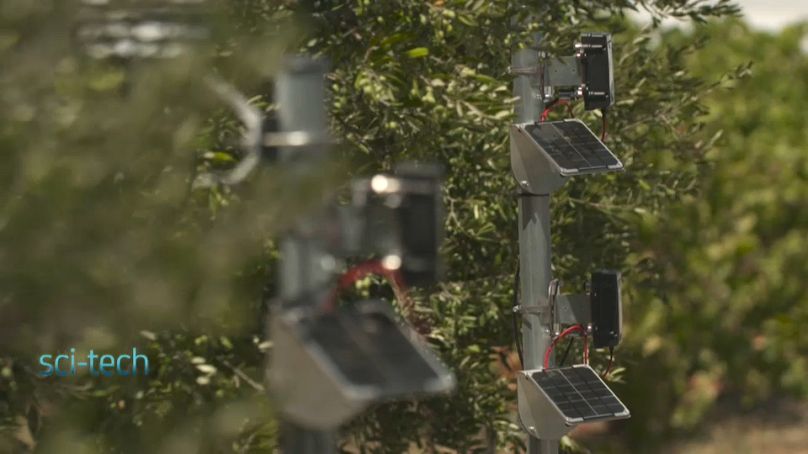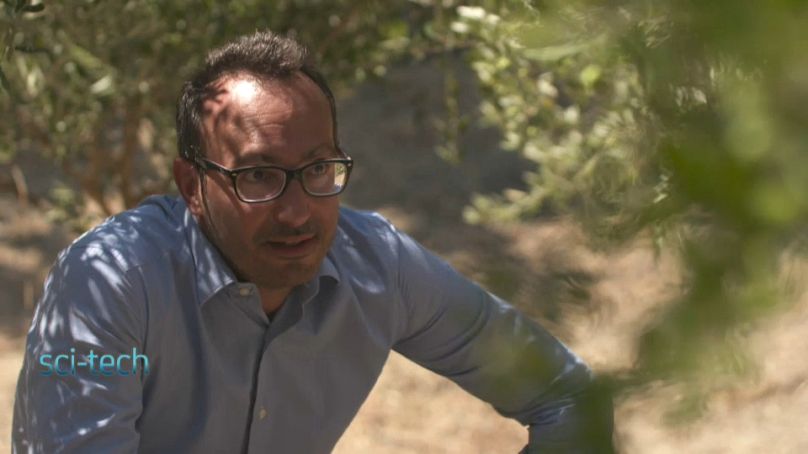Technology has come so far in the last century; from the chunky and in retrospect clunky early computers and communication equipment, to the sleek devices of today. Then there’s Artificial Intelligence (AI) and the Internet Of Things (IOT) - that is, the interconnectivity of all our devices, fuelled by increasingly powerful systems.
In Crete, olives are big business and an important part of the economy of Greece's largest and most populous island.
There are 30 million olive trees on Crete, so the potential effects of smart farming are very far-reaching. Agriculture, including olive farming, currently consumes 85% of Crete’s freshwater supply.
The idea of using smart technology is to substantially cut any waste. Ioannis Daliakopoulos, a Research Engineer at Crete's Hellenic Mediterranean University, says the use of technology in this project involves constantly monitoring the soil condition: “On the ground, we have installed a sensor that measures soil moisture, electrical conductivity, how salty the water is and the temperature of the soil - every 15 minutes. "This information is transmitted to a central base and then to the Cloud, where it’s processed and we can estimate the perfect amount of water that needs to be used for irrigation.”
In Crete, olives are big business and an important part of the economy of Greece's largest and most populous island. There are 30 million olive trees on Crete, so the potential effects of smart farming are very far-reaching.
Agriculture, including olive farming, currently consumes 85% of Crete’s freshwater supply. The idea of using smart technology is to substantially cut any waste.
Ioannis Daliakopoulos, a Research Engineer at Crete's Hellenic Mediterranean University, says the use of technology in this project involves constantly monitoring the soil condition:
“On the ground, we have installed a sensor that measures soil moisture, electrical conductivity, how salty the water is and the temperature of the soil - every 15 minutes.
"This information is transmitted to a central base and then to the Cloud, where it’s processed and we can estimate the perfect amount of water that needs to be used for irrigation.”
The farmer can then access the data remotely and control the watering at the touch of a button.
Thrassyvoulos Manios, Vice-Rector at Hellenic Mediterranean University, says the technology will mean the saving of a massive amount of the water resource:
“Farmers, as well as scientists and researchers, should get to know what the internet of things is, exactly, because there are massive amounts that we can do through this new tool.
"They can do the same thing with chemical fertilisation, they can do that with pesticides, they can do that with soil protection, with plant protection.”
This all helps the environment and boosts traceability of products too, with consumers set to get more information on how foods are produced.





